blog
Book Review: Reconciliation by S. Billie Mandle
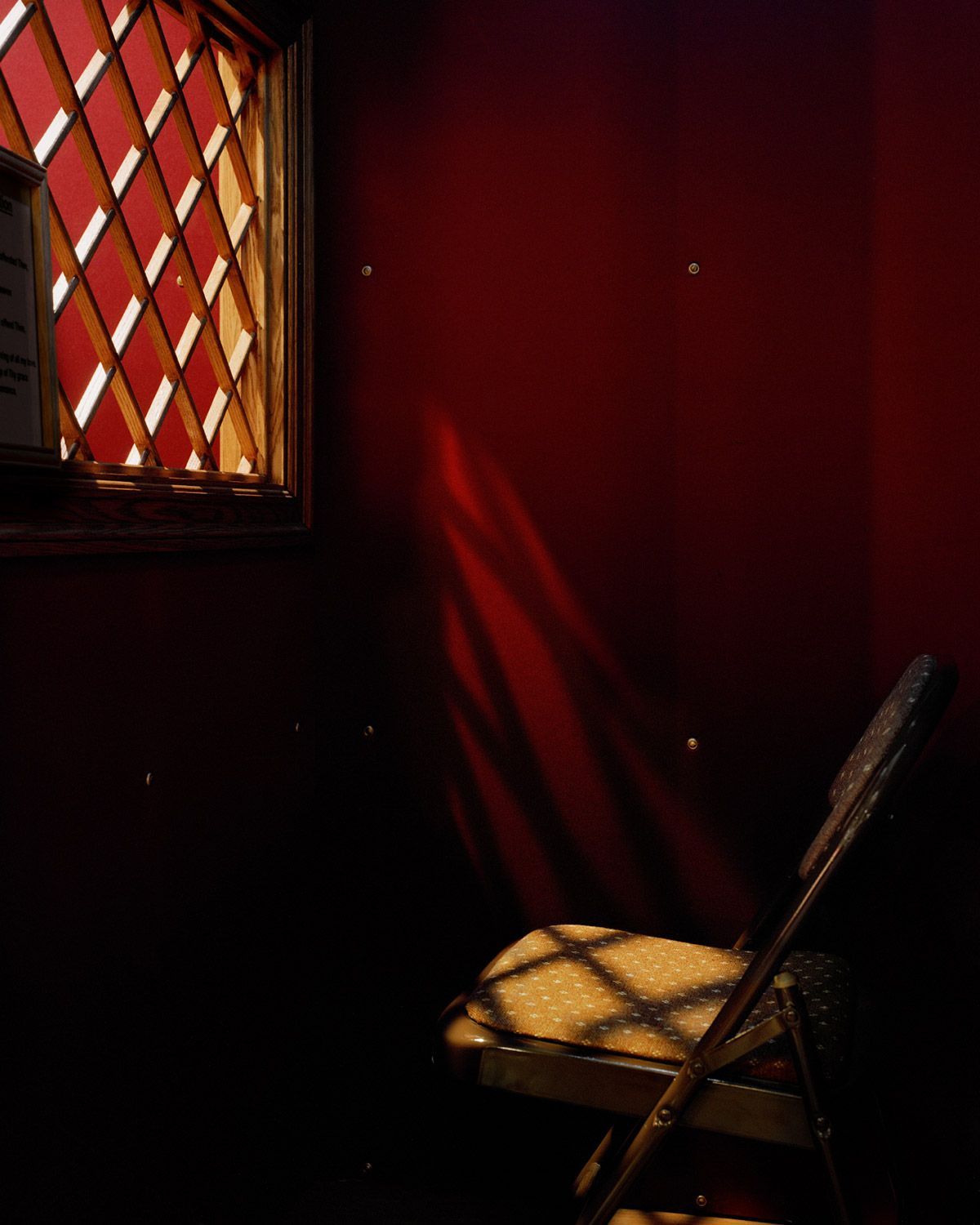
01 Saint Malachy © S. Billie Mandle
Appearances can be deceiving at times. Often.
S. Billie Mandle’s book, speaking of faith, confirms this. But I do not want to deceive you and deceive me on the grounds of a single creed, which would make this work too partial: the faith I am talking about is anthropological; it is a condition that we all need.
Reconciliation presents itself with the same modesty of its cover: the title and a woven covering, perhaps a reference to asceticism. Maybe.
The decisive words of Dorothy Day (journalist, social activist) and the choice of the shaded red color of the graphic design of the book (a reference to the worn furnishings of certain sacred vestments) transforms the introduction into a whisper. In a subdued perfect entry into the body of Mandle’s work:
“When you go to confession on a Saturday night, you go into a warm, dimly lit vastness,
with the smell of wax and incense in the air, the smell of burning candles, and if it is a
hot summer night there is the sound of a great electric fan, and the noise of the streets
coming in to emphasize the stillness. There is another sound too, besides that of the quiet
movements of the people from pew to confession to altar rail; there is the sliding of the shutters
of the little window between you and the priest in his box.”
S. Billie Mandle has photographed confessionals for 10 years throughout the United States. Working in large format and using only natural light, because for certain jobs you need patience, time: because for certain jobs, even time does not exist. Like in confession.
It is a suspension that remains in Mandle’s work: in a sacred text leaning against the grate of a confessional, just lit; in the dots of a curtain, probably inflated by the draft of a sacristy; in the threadbare wooden planks of a floor or in the worn fabric of a kneeling cushion; in the solitude of the moment that is charged with anxiety and precedes comfort. It is a suspension that I have grasped, evident, and that has pushed me to deepen what is not, only in appearance, an excellent and interesting documentary work but a comparison between the author’s need to externalize herself with photography and her position towards religion.
Photography is the means by which the artist finds the necessary detachment to allow her to reflect in a less subjective and engaging way with religion and, in the meantime, condense her position through observation, documentation, of the places of confession and penance. Perhaps making her work itself a confession. The confession of the fact that her relationship with religion (her press kit describing her as “a queer woman raised Catholic”), perhaps also with photography, is in comparison and in evolution. Perhaps this is the chance of reconciliation, in fact. This is a book made of so much beauty, spirit, depth, curiosity. A whole that has filled my nostrils like my imagination, trying to stop the moment of confession, that moment, of suspension, appearance, confession, reconciliation. Of that smell of worship, religion, sacred place, ritual incense.
Appearances are deceiving, I said. And I confess that this book, wanting to be sensitive, can be overwhelming. It can push, in the most absolute sense (anthropological, in fact), to reflect on one’s relationship with religion, on the need for it and for confession (and therefore of our tendential incompleteness) starting from a purely photographic, figurative and aesthetic stimulus.
“Moreover, I feel hesitant to go too deeply in writing of other lives. It is hard enough to write about my own. I do feel, however, that I have a right to give an account of myself, a reason for the faith that is in me. […] I feel that I have done nothing well. But I have done what I could.”
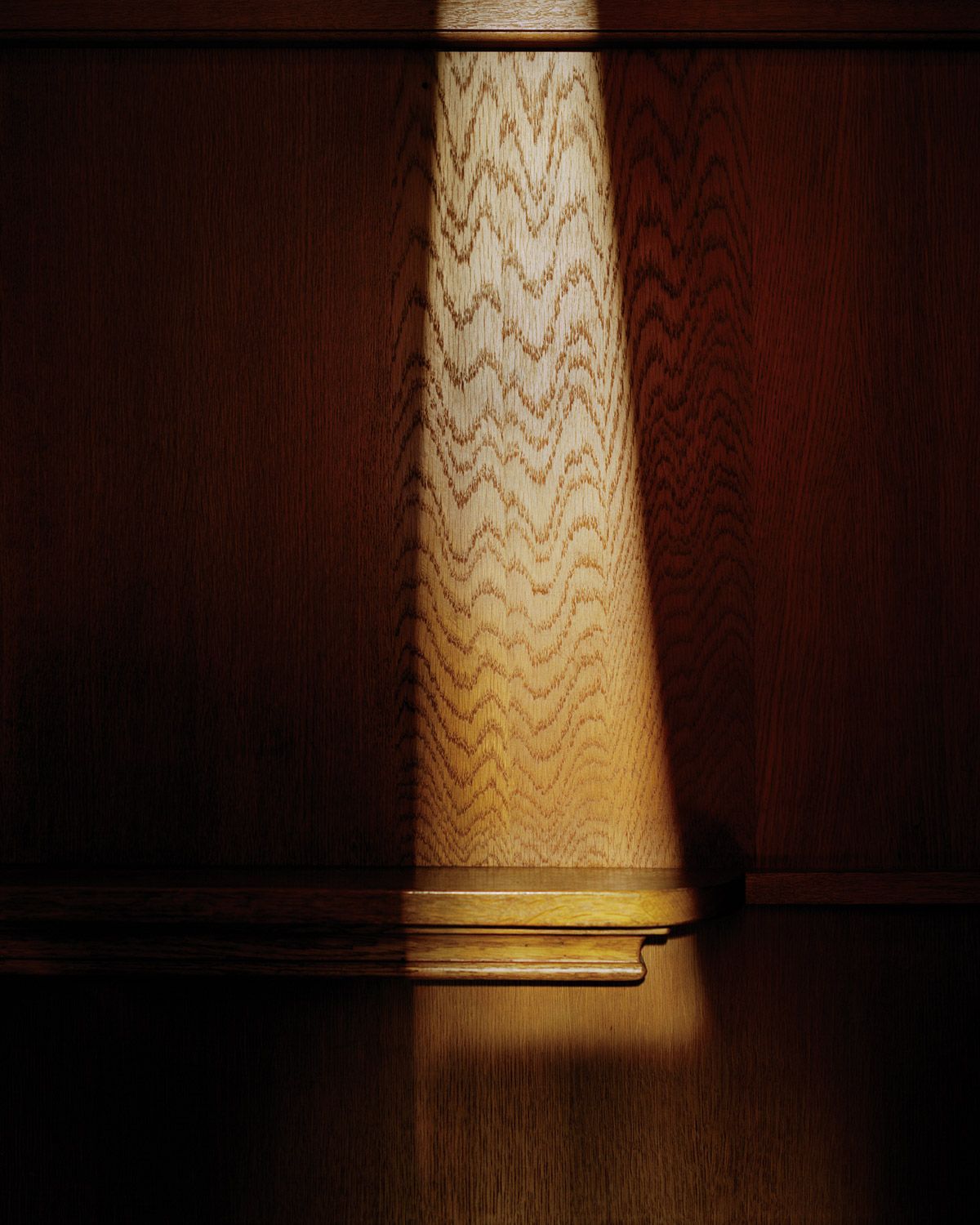
02 Saint Thomas More © S. Billie Mandle
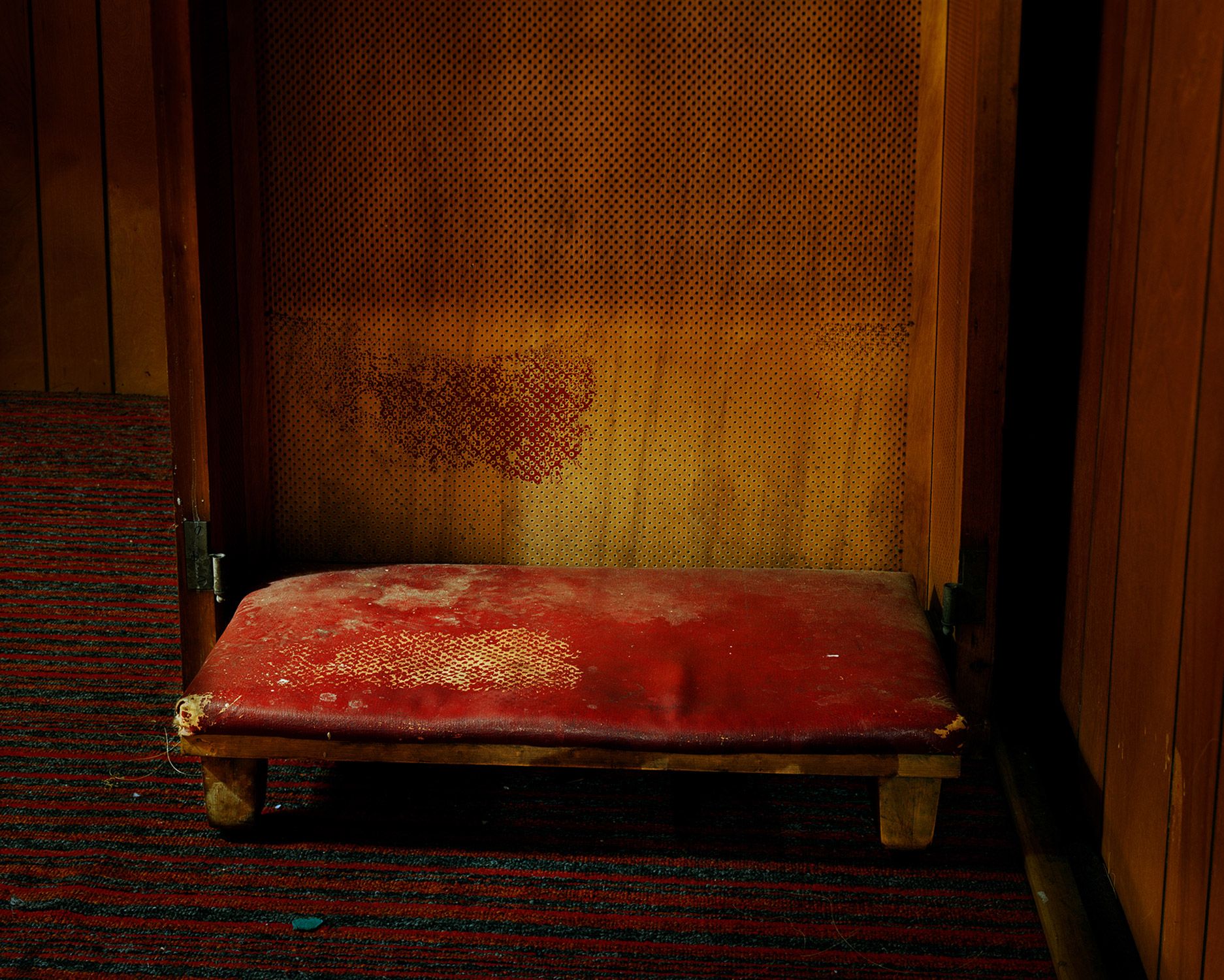
03 Saint Barbara © S. Billie Mandle

4 Saint Michael © S. Billie Mandle

05 Saint Peter
© S. Billie Mandle
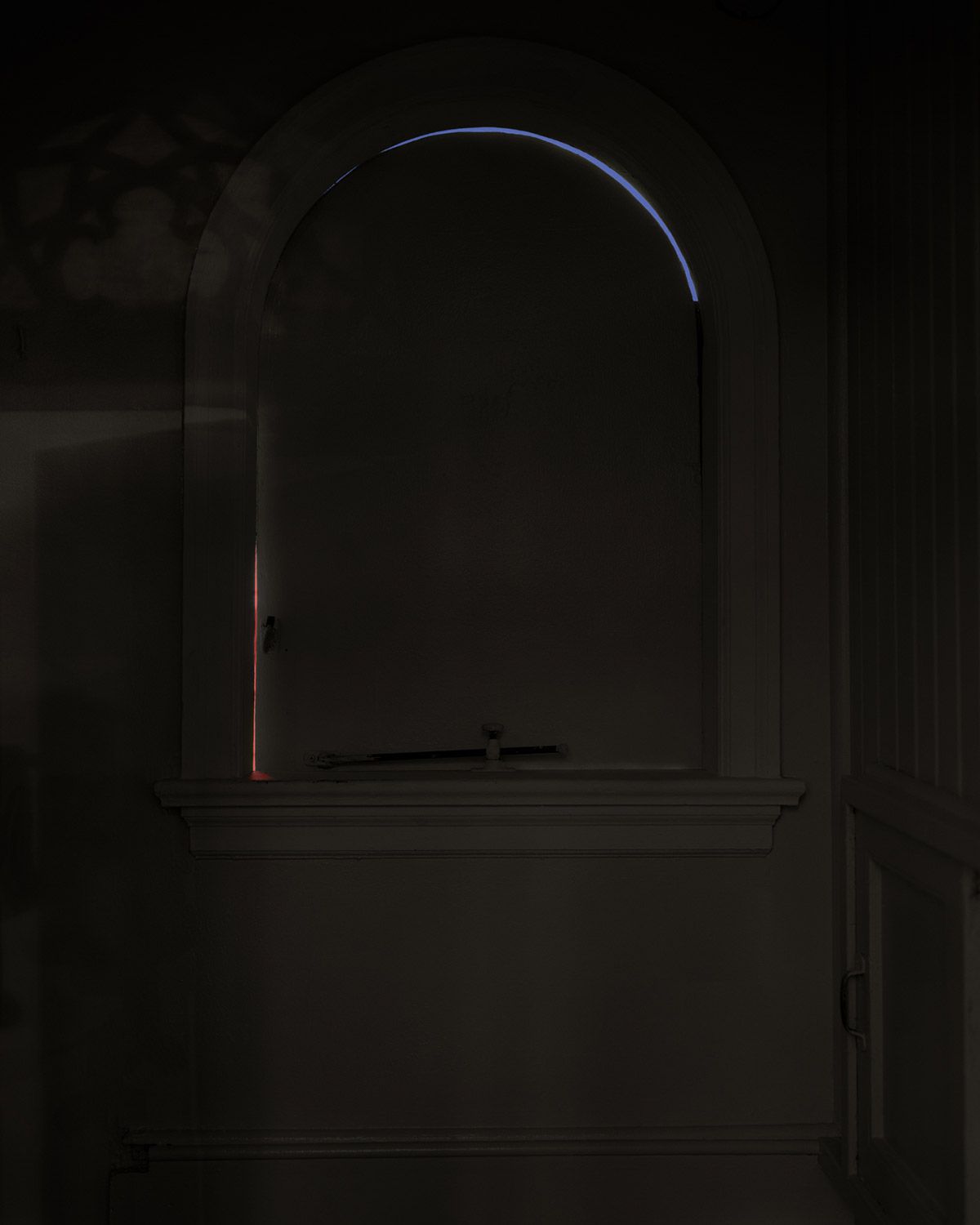
06 Most Holy Redeemer © S. Billie Mandle
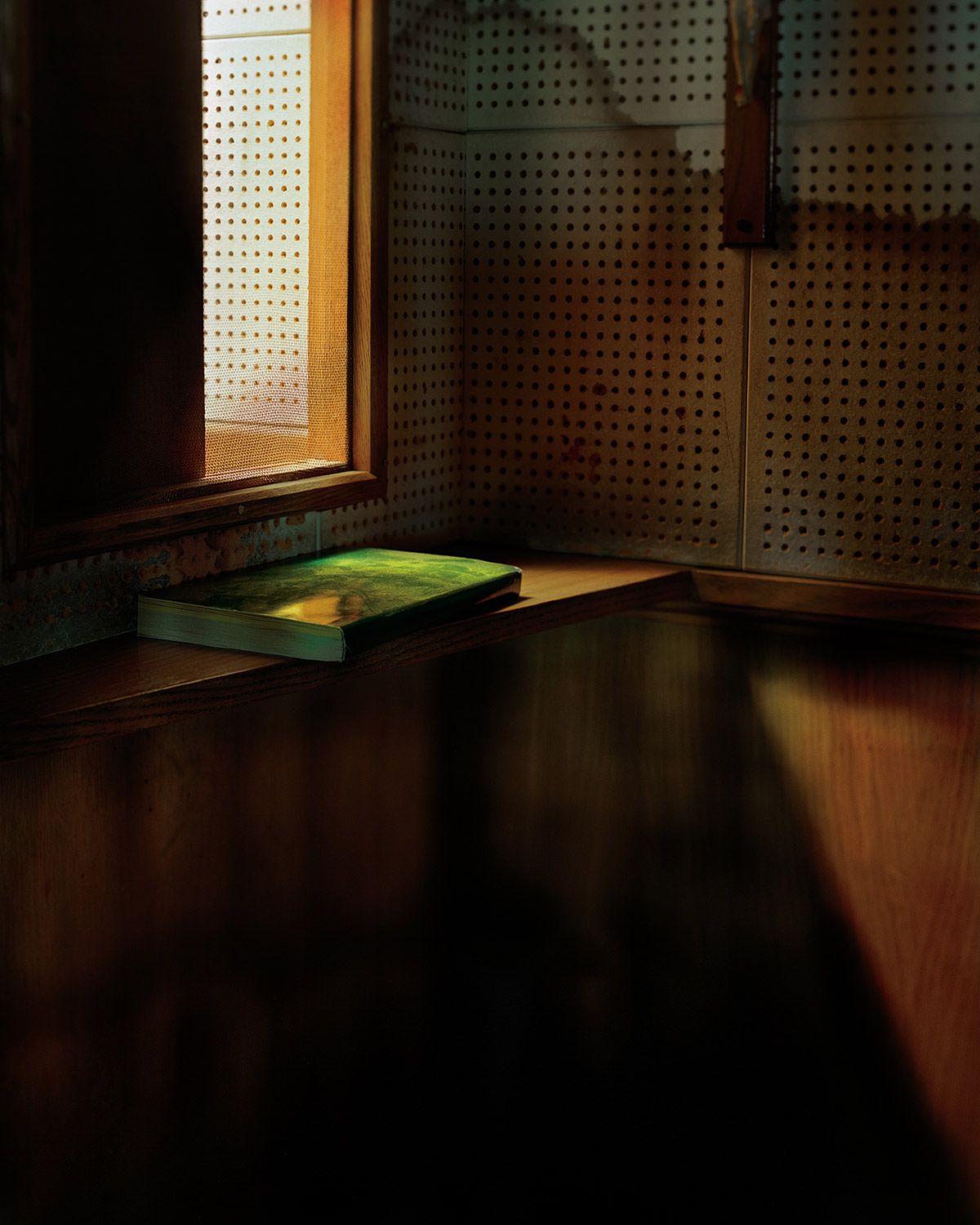
7 Saint Christopher © S. Billie Mandle

08 Holy Family
© S. Billie Mandle
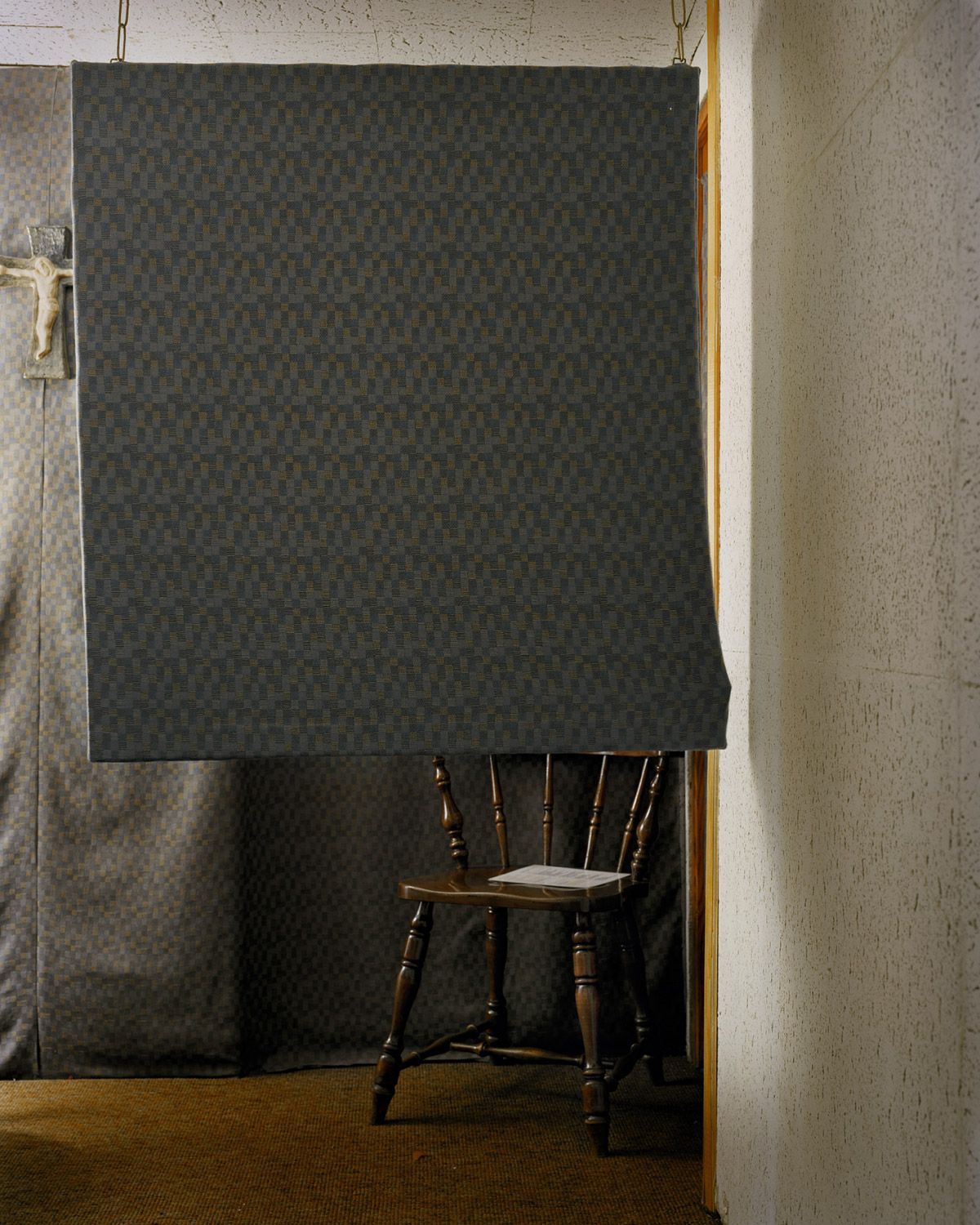
09 Visitation of the Virgin Mary © S. Billie Mandle
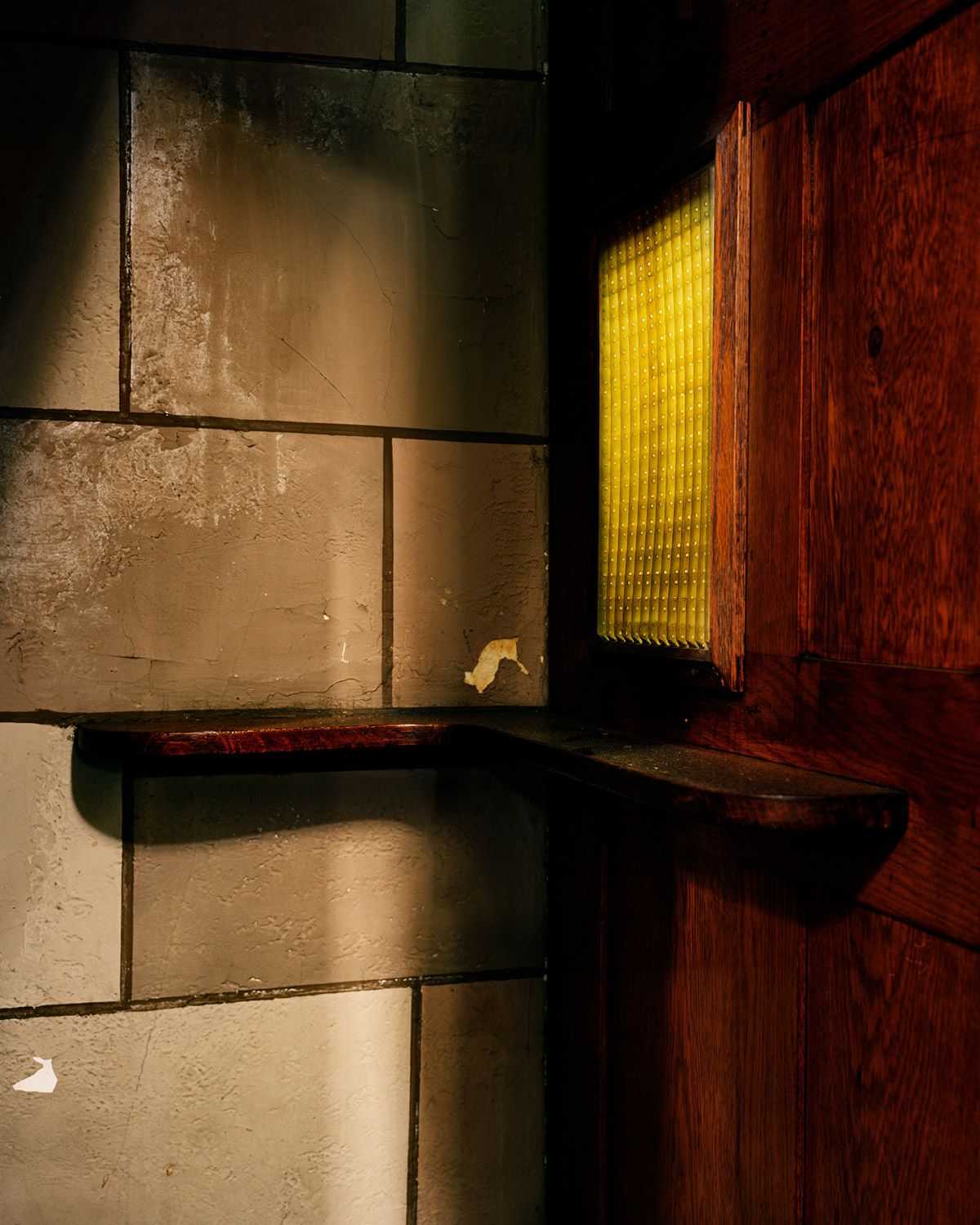
10 Our Lady of Mount Carmel © S. Billie Mandle
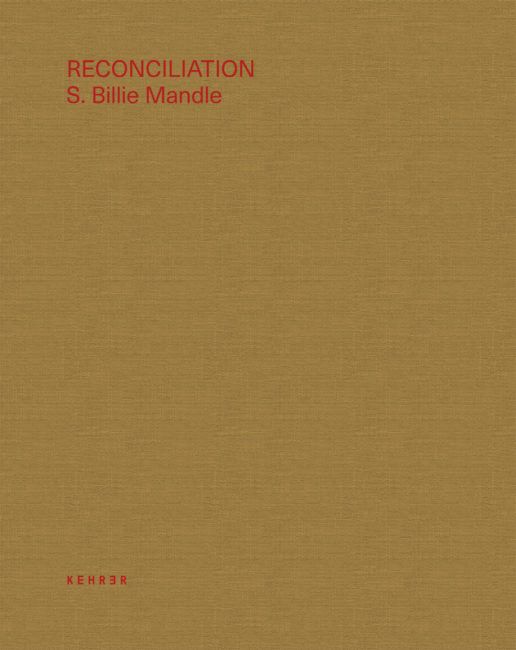
Reconciliation
by S. Billie Mandle
Published by Kehrer Verlag
www.kehrerverlag.com/en/s-billie-mandle-reconciliation-978-3-86828-951-0
L’apparenza inganna, alle volte. Spesso.
Il libro di Billie Mandle, parlando di fede, lo conferma. Ma non voglio ingannarvi ed ingannarmi adducendo motivazioni relative ad un solo credo, che renderebbero questo lavoro troppo parziale: la fede di cui parlo è antropologica; è una condizione della quale tutti noi abbiamo bisogno.
Reconciliation si presenta con la stessa modestia della sua copertina: il titolo ed un rivestimento intessuto, forse un richiamo all’ascesi. Forse.
Le parole decise di Dorothy Day (giornalista, attivista sociale) ed il rosso su rosso sbiadito scelto per la sua veste grafica, un rimando agli arredamenti lisi e consumati di certi paramenti sacri, trasformano in un sussurro l’introduzione. In un’entrata sommessa, perfetta, nel corpo del lavoro di Billie:
“Quando vai alla confessione di sabato sera, entri in una vastità tiepida, debolmente illuminata, con l’odore di cera e incenso nell’aria, l’odore delle candele accese e se è un’estate calda la notte c’è il suono di un grande ventilatore elettrico e il rumore delle strade che si affaccia ad enfatizzare l’immobilità del luogo. C’è anche un altro suono, oltre a quello dei movimenti quieti delle persone dal banco alla confessione alla balaustra; c’è lo scorrimento delle tendine della piccola finestra tra te e il prete nella sua “scatola”. ”
Billie Mandle ha fotografato, per 10 anni, confessionali in tutti gli Stati Uniti d’America. Lavorando in grande formato ed utilizzando la sola luce naturale, perché per certi lavori c’è bisogno di pazienza, di tempo: perché per certi lavori, addirittura, il tempo non esiste. Come nella confessione.
È una sospensione che rimane nel lavoro di Billie: in un testo sacro appoggiato a ridosso della grata di un confessionale, appena illuminata; nelle puntinature di un tendaggio, probabilmente gonfiato dallo spiffero di una sagrestia; nelle assi di legno lise di un pavimento o nel tessuto consunto del cuscino di un inginocchiatoio; nella solitudine del momento che si carica di ansia e precede il conforto. È una sospensione che io ho colto, evidente, e che mi ha spinto ad approfondire quello che non è, soltanto in apparenza, un ottimo ed interessante lavoro di documentazione bensì un confronto tra il bisogno dell’autrice di esternarsi con la fotografia e la sua posizione nei confronti della religione.
La fotografia è il mezzo attraverso il quale l’artista trova il distacco necessario per consentirle di riflettere in modo meno soggettivo e coinvolgente dalla religione e, nel frattempo, condensare la sua posizione attraverso l’osservazione, la documentazione, dei luoghi di confessione e di penitenza.
Forse rendendo il suo lavoro esso stesso una confessione. La confessione del fatto che il suo rapporto con la religione (la sua cartella stampa la definisce “donna strana cresciuta con una educazione cattolica”), forse anche con la fotografia, è in confronto ed in evoluzione. Forse che questa è l’occasione, stavolta non apparente, di riconciliazione, appunto.
Questo è un libro fatto di tanta bellezza, spirito, profondità, curiosità. Un tutt’uno che mi ha riempito le narici al pari dell’immaginazione, provando a fermare il momento della confessione, quel momento, di sospensione, apparenza, confessione, riconciliazione. Di quell’odore di culto, religione, luogo sacro, incenso rituale.
L’apparenza inganna, dicevo. E vi confesso che questo libro, volendo essere sensibili, può essere travolgente. Può spingere, nel senso più assoluto (antropologico, appunto), a riflettere sul proprio rapporto con la religione, sul bisogno di essa e della confessione (e quindi della nostra tendenziale incompletezza) partendo da uno stimolo prettamente fotografico, figurativo, estetico.
“Inoltre, mi sento esitante ad approfondire troppo la scrittura di altre vite. È abbastanza difficile scrivere sulla mia. Sento, tuttavia, che ho il diritto di dare un resoconto di me stesso, una ragione per la fede che è in me. […] Sento di non aver fatto nulla di buono. Ma ho fatto quello che potevo.”
Location: Online Type: Book Review
Events by Location
Post Categories
Tags
- Abstract
- Alternative process
- Architecture
- Artist Talk
- artistic residency
- Biennial
- Black and White
- Book Fair
- Car culture
- Charity
- Childhood
- Children
- Cities
- Collaboration
- Community
- Cyanotype
- Documentary
- Environment
- Event
- Exhibition
- Faith
- Family
- Fashion
- Festival
- Film Review
- Food
- Friendship
- FStop20th
- Gender
- Gun Culture
- Habitat
- Hom
- home
- journal
- Landscapes
- Lecture
- Love
- Masculinity
- Mental Health
- Migration
- Museums
- Music
- Nature
- Night
- nuclear
- p
- photographic residency
- Photomontage
- Plants
- Podcast
- Portraits
- Prairies
- Religion
- River
- Still Life
- Street Photography
- Tourism
- UFO
- Water
- Zine

Leave a Reply